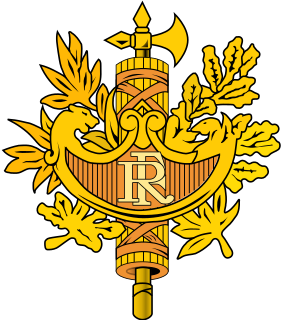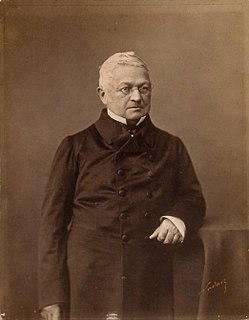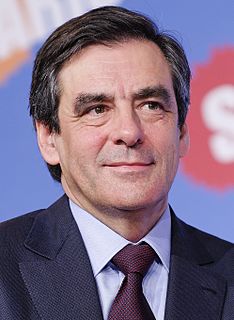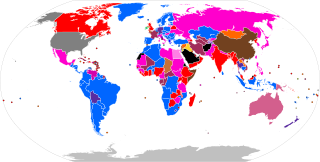| |||||||||||||||||||||||||||||
638 on 778 seats to the National Assembly 320 seats needed for a majority | |||||||||||||||||||||||||||||
| |||||||||||||||||||||||||||||
| |||||||||||||||||||||||||||||
Legislative elections were held in France on 8 February 1871 to elect the first legislature of the French Third Republic, the unicameral National Assembly. The elections were held during a situation of crisis in the country, as following the Franco-Prussian War, 43 departments were occupied by Prussian forces. As a result, all public meetings were outlawed and Paris was the only city where an election campaign took place.

France, officially the French Republic, is a country whose territory consists of metropolitan France in Western Europe and several overseas regions and territories. The metropolitan area of France extends from the Mediterranean Sea to the English Channel and the North Sea, and from the Rhine to the Atlantic Ocean. It is bordered by Belgium, Luxembourg and Germany to the northeast, Switzerland and Italy to the east, and Andorra and Spain to the south. The overseas territories include French Guiana in South America and several islands in the Atlantic, Pacific and Indian oceans. The country's 18 integral regions span a combined area of 643,801 square kilometres (248,573 sq mi) and a total population of 67.3 million. France, a sovereign state, is a unitary semi-presidential republic with its capital in Paris, the country's largest city and main cultural and commercial centre. Other major urban areas include Lyon, Marseille, Toulouse, Bordeaux, Lille and Nice.

The French Third Republic was the system of government adopted in France from 1870, when the Second French Empire collapsed during the Franco-Prussian War, until 10 July 1940 after France's defeat by Nazi Germany in World War II led to the formation of the Vichy government in France.

The French Parliament is the bicameral legislature of the French Republic, consisting of the Senate (Sénat) and the National Assembly. Each assembly conducts legislative sessions at a separate location in Paris: the Palais du Luxembourg for the Senate and the Palais Bourbon for the National Assembly.
The electoral law allowed candidates to run in more than one seat at a time. As a result, several candidates were elected in more than one seat, with Adolphe Thiers elected in 86 constituencies. A series of by-elections were subsequently held on 2 July to elect representatives for the 114 vacant seats.
An electoral district, (election) precinct, election district, or legislative district, called a voting district by the US Census is a territorial subdivision for electing members to a legislative body. Generally, only voters (constituents) who reside within the district are permitted to vote in an election held there. From a single district, a single member or multiple members might be chosen. Members might be chosen by a first-past-the-post system or a proportional representative system, or another voting method entirely. Members might be chosen through a direct election under universal suffrage, an indirect election, or another form of suffrage.

Marie Joseph Louis Adolphe Thiers was a French statesman and historian. He was the second elected President of France, and the first President of the French Third Republic.
This election saw the victory of monarchists (Legitimists and Orleanists), favourable to peace with the German Empire, with a large majority.

The Legitimists are royalists who adhere to the rights of dynastic succession to the French crown of the descendants of the eldest branch of the Bourbon dynasty, which was overthrown in the 1830 July Revolution. They reject the claim of the July Monarchy of 1830–1848 which placed Louis Philippe, Duke of Orléans head of the Orléans cadet branch of the Bourbon dynasty on the throne until he too was dethroned and driven with his family into exile.

The German Empire, also known as Imperial Germany, was the German nation state that existed from the unification of Germany in 1871 until the abdication of Kaiser Wilhelm II in 1918.
















